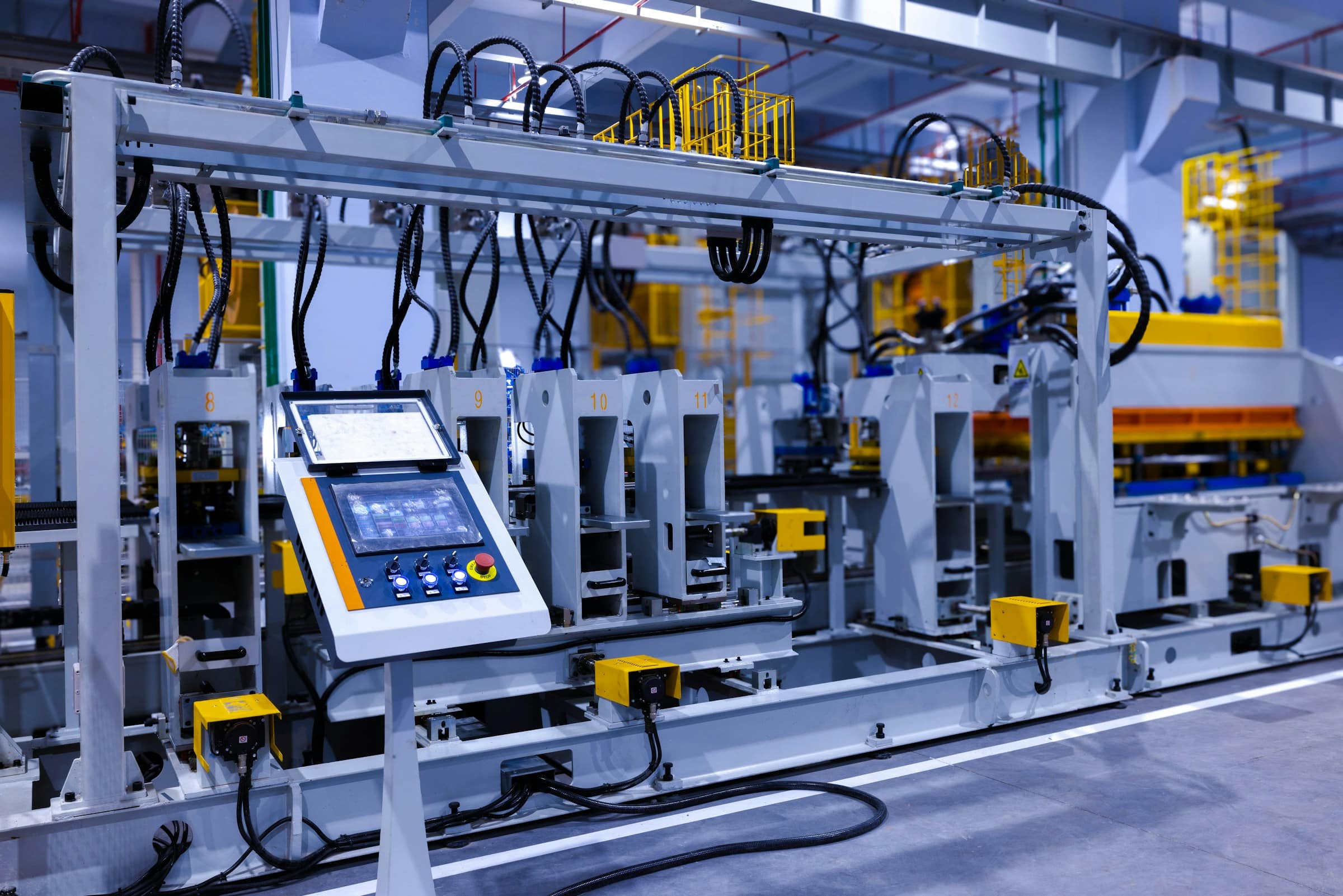
What innovative technologies can UK manufacturing companies use to improve efficiency?
In the rapidly evolving landscape of the manufacturing sector, UK companies are constantly seeking avenues to enhance efficiency and stay ahead of the curve. The advent of the fourth industrial revolution has ushered in a wave of digital transformation, revolutionising supply chains and manufacturing processes. By leveraging advanced manufacturing techniques and emerging technologies, businesses can not only streamline operations but also gain a competitive edge. This article delves into the innovative technologies that UK manufacturing companies can utilise to boost efficiency and drive growth.
The Role of Digital Transformation in Manufacturing
Digital transformation is reshaping the manufacturing industry, enabling companies to harness the power of real-time data and digital technologies. By integrating these technologies into their operations, manufacturers can achieve greater visibility, agility, and responsiveness in their supply chains. The journey towards a digitally transformed manufacturing sector involves adopting tools such as artificial intelligence (AI), machine learning, and the Internet of Things (IoT).
A voir aussi : How to create a robust cybersecurity framework for protecting UK e-commerce platforms?
AI and machine learning are at the forefront of this transformation, offering capabilities that were once thought impossible. From predictive maintenance to quality control, these technologies help manufacturers optimise their processes and reduce downtime. Companies can analyse vast amounts of data to predict potential equipment failures and schedule maintenance proactively, thereby avoiding costly disruptions.
IoT, on the other hand, facilitates the seamless connection of devices and systems, enabling real-time monitoring and control. By collecting and analysing data from various sources, manufacturers can gain insights into their operations and make informed decisions. This interconnected ecosystem enhances efficiency and productivity, paving the way for smart factories that can operate autonomously.
A lire également : What are the key considerations for implementing edge computing in UK's tech industry?
The Emergence of Digital Manufacturing and Smart Factories
The concept of digital manufacturing revolves around the use of digital technologies to design, simulate, and produce products. It encompasses a range of tools and techniques, including computer-aided design (CAD), computer-aided manufacturing (CAM), and 3D printing. These technologies enable manufacturers to create virtual prototypes, test them in a simulated environment, and optimise designs before production.
One of the key benefits of digital manufacturing is its ability to reduce lead times and improve product quality. By eliminating the need for physical prototypes and manual adjustments, companies can bring products to market faster and with fewer defects. This not only enhances customer satisfaction but also reduces costs and waste.
Smart factories take digital manufacturing to the next level by integrating IoT, AI, and machine learning into the production process. These factories are equipped with sensors, actuators, and data analytics tools that enable real-time monitoring and optimisation. For example, machines can communicate with each other to adjust production schedules, minimise downtime, and ensure optimal resource utilisation.
The UK government has recognised the potential of digital manufacturing and smart factories, launching initiatives such as the Digital Catapult to support innovation in this area. By fostering collaboration between industry, academia, and government, the Digital Catapult aims to accelerate the adoption of digital technologies and drive economic growth.
Enhancing Supply Chain Efficiency with Real-Time Data
Supply chains are the backbone of the manufacturing industry, and their efficiency has a direct impact on a company's bottom line. In today's fast-paced business environment, it is essential for manufacturers to have real-time visibility into their supply chains. This is where real-time data and advanced analytics come into play.
Real-time data allows manufacturers to track the movement of goods, monitor inventory levels, and manage logistics in real-time. By leveraging IoT sensors and RFID tags, companies can gain insights into the location and condition of their products at every stage of the supply chain. This visibility enables them to respond quickly to disruptions, such as delays or quality issues, and make data-driven decisions to optimise their operations.
Advanced analytics, powered by AI and machine learning, further enhance supply chain efficiency by providing predictive insights. Manufacturers can analyse historical data to identify patterns and trends, forecast demand, and optimise inventory levels. This proactive approach helps companies reduce stockouts, minimise excess inventory, and improve customer satisfaction.
Moreover, real-time data and analytics enable collaborative planning and forecasting among supply chain partners. By sharing information and working together, manufacturers can align their production schedules, optimise transportation routes, and reduce lead times. This level of collaboration fosters a more efficient and resilient supply chain, capable of adapting to changing market conditions.
Leveraging Augmented Reality for Improved Manufacturing Processes
Augmented reality (AR) is another emerging technology that holds great promise for the manufacturing industry. By overlaying digital information onto the physical world, AR enables workers to access real-time data, instructions, and visualisations, enhancing their productivity and accuracy.
In a manufacturing setting, AR can be used for tasks such as assembly, maintenance, and quality control. For example, workers can use AR glasses to view step-by-step instructions or access real-time data about the status of a machine. This eliminates the need for printed manuals and reduces the risk of errors, ensuring that tasks are performed correctly and efficiently.
AR also facilitates remote assistance and training, enabling experts to provide guidance and support to on-site workers from anywhere in the world. This is particularly valuable in situations where specialised knowledge is required, but the expert is not physically present. By using AR, companies can improve the efficiency of their workforce and reduce downtime caused by equipment failures or maintenance issues.
Moreover, AR can enhance collaboration and communication within the manufacturing environment. Teams can use AR to visualise and share design concepts, simulate production processes, and identify potential issues before they arise. This collaborative approach fosters innovation and accelerates the development of new products and processes.
The Importance of Professional Support in the Digital Transformation Journey
As UK manufacturing companies navigate the complexities of digital transformation, it is crucial to have the right support and guidance. Accountants, tax advisers, and business property experts play a vital role in helping businesses make informed decisions and maximise the benefits of emerging technologies.
Tax advisers, for instance, can provide valuable insights into the tax implications of investing in digital technologies and advanced manufacturing techniques. They can help companies identify eligible tax credits and incentives, such as the Research and Development (R&D) Tax Credit, which can offset the costs of innovation.
Similarly, accountants can assist in budgeting and financial planning, ensuring that companies allocate resources effectively and achieve a high return on investment. By analysing financial data and providing strategic advice, accountants can help manufacturers make informed decisions and drive sustainable growth.
Business property experts, on the other hand, can provide guidance on the optimal use of manufacturing facilities and the integration of smart technologies. They can help companies assess the suitability of their existing infrastructure and identify opportunities for improvement. This includes evaluating the feasibility of retrofitting existing facilities with IoT sensors, automation systems, and other digital tools.
In addition, organisations like the Digital Catapult can provide valuable support in the form of funding, expertise, and networking opportunities. By partnering with industry leaders and academic institutions, the Digital Catapult fosters innovation and accelerates the adoption of digital technologies in the manufacturing sector.
In conclusion, the UK manufacturing industry stands at the cusp of a digital revolution, with numerous innovative technologies poised to transform operations and enhance efficiency. By embracing digital transformation and adopting tools such as AI, machine learning, IoT, and augmented reality, manufacturers can streamline their processes, optimise supply chains, and drive growth.
Real-time data and advanced analytics play a pivotal role in improving supply chain visibility and responsiveness, enabling manufacturers to make informed decisions and adapt to changing market conditions. Furthermore, digital manufacturing and smart factories offer the potential to reduce lead times, improve product quality, and enhance collaboration.
Professional support from accountants, tax advisers, and business property experts is essential in navigating the complexities of this transformation and maximising the benefits of emerging technologies. By leveraging their expertise and insights, manufacturers can make informed decisions and achieve sustainable growth.
As we move forward, it is imperative for UK manufacturing companies to embrace innovation and invest in the technologies that will shape the future of the industry. By doing so, they can not only improve efficiency but also secure a competitive edge in the global market. The journey towards a digitally transformed manufacturing sector may be challenging, but the rewards are well worth the effort.
